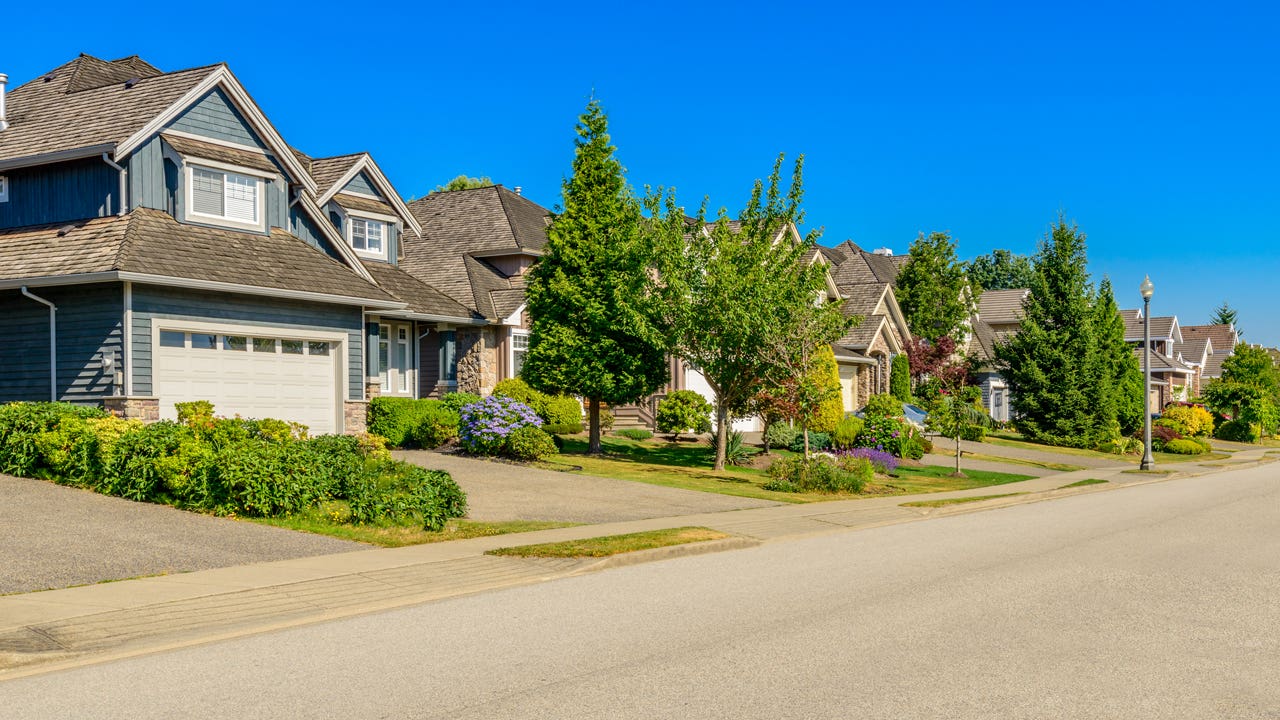What is residential real estate?

The Bankrate promise
At Bankrate we strive to help you make smarter financial decisions. While we adhere to strict , this post may contain references to products from our partners. Here's an explanation for .
Property used for residential purposes — that is, developed specifically as a place for people to live — is the most common type of real estate. Residential areas are typically defined by local zoning ordinances and cannot be used for commercial or industrial purposes. Zoning laws vary by location and sometimes restrict the amount of buildings permitted or what kinds of municipal services may be provided to them.
What is residential real estate?
Residential real estate is property (both land and buildings) used for housing. This is in contrast to commercial or industrial real estate, where the land and buildings are zoned for operating a business, such as a store, an office or a factory.
Purchasing residential real estate is often the largest and most important financial investment a person makes in their lifetime. Its value is determined by many factors, including size and location, and is subject to shifts in the market. Some individuals invest in residential real estate as a money-making venture, either by flipping it for a profit or renting it out to tenants. But most people simply live on their property.
Types of residential real estate
Residential real estate encompasses various types of homes, from single-family houses to apartments. Deciding which type of housing is right for you comes down to budget, family needs and location, among other factors. Common types include:
- Single-family homes: The typical suburban house is a single-family home: a stand-alone residential structure that usually sits on its own land. These are single units meant for one occupant or family; they are not divided up into multiple units.
- Townhouses: Housing units that stand side by side, with shared walls separating one from the next, are known as townhouses (or townhomes, or row houses). This type of housing unit is typically individually owned and has multiple levels.
- Condominiums: Condominiums (condos for short) are privately owned units that are often located inside a large building or within a community of other such units. They are typically townhouses or apartments. The community of condo owners jointly owns and maintains any shared areas within their community, such as lobbies, hallways and elevators. In some cases, this may also include shared amenities like a gym, a pool or a parking garage.
Residential real estate comes in many different architectural styles as well. A few popular examples are single-story ranch homes; Craftsman-style homes, which are typically square with covered front porches; and highly embellished, ornamental Victorians.
Residential real estate vs. other types of real estate
Residential real estate is for living in. It is typically zoned for housing and nothing else, meaning no large business ventures can be based there. Commercial or industrial real estate, on the other hand, can be used to operate businesses designed to generate revenue, such as retail stores, offices or factories.
Commercial real estate is often designated as such by local zoning laws and allows for a far broader range of buildings and activities than residential property. The common theme, though, is that buildings in commercial-zoned areas must house businesses, not residential structures.
Find a trusted real estate agent
If you’re hoping to buy a house — meaning you’re in the market for some residential real estate — it’s a good idea to work with an experienced local real estate agent. An agent who knows your area well can help you find homes that meet your needs and navigate the purchase process effectively. Asking friends and relatives for referrals can be a good starting point. Be sure to interview multiple agents to find the one who’s the best fit for you.
Related Articles



